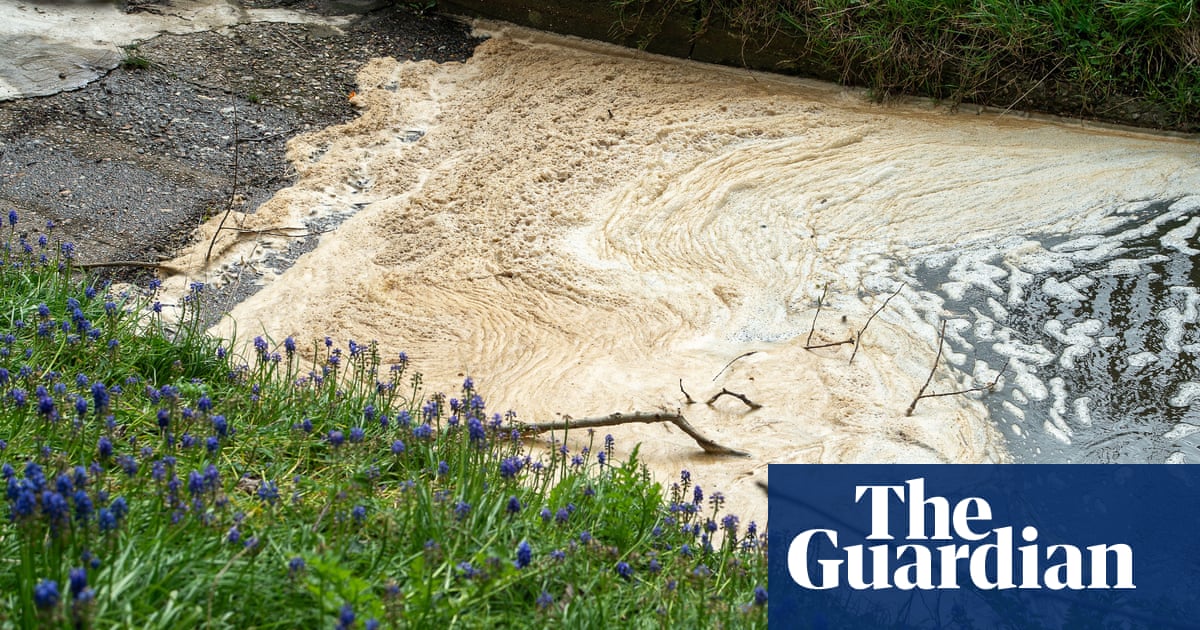Six water companies overcharged customers between £800m and £1.5bn by “significantly or systematically” underreporting the true scale of their sewage pollution of rivers and waterways, a tribunal has heard.
In the first environmental competition class action against water companies in England, lawyers argued that the privatised firms had abused their monopoly position to mislead regulators over the amount of sewage they were discharging from their assets over the past 10 years.
As a result, the companies, Thames Water, Yorkshire Water, Anglian Water, Severn Trent, Northumbrian Water and United Utilities, were able to charge customers higher bills than they would have been allowed to if they had provided the regulators with a true picture of their sewage pollution.
Prof Carolyn Roberts, a water resource specialist, is taking the action in the competition appeals tribunal and seeking to represent millions of consumers who she believes have been overcharged by hundreds of millions of pounds.
Julian Gregory, for Roberts, told the tribunal on Monday that all the water firms were monopolies that were not subject to any competitive pressures to provide sewerage services to the public. The companies were all legally required to report pollution to the regulators – the Environment Agency and Ofwat, he said.
“Sewage spills pose a threat to wildlife, the environment and public health,” said Gregory.
The pricing regime, controlled by Ofwat, allows the regulator to limit the amount charged to customers for the monopoly services of providing drinking water and sewerage.
The structure provides a financial incentive for water companies to reduce sewage pollution.
Gregory said the six companies had misled both Ofwat and the Environment Agency by significantly or systematically underreporting the number of sewage discharges from their treatment works and combined sewer overflows from 2014 onwards.
By misleading the regulators on the true scale of sewage discharges, they had been allowed by Ofwat to charge customers higher prices than if they had reported the sewage pollution accurately, said Gregory.
“Carolyn Roberts estimates across the six water companies customers may have been overcharged £800m to £1.5bn,” he said.
“Many people care deeply about the state of our rivers … sewage spills to them can be incredibly damaging. As the true number of sewage spills have become apparent there has been a public outcry,” he said.
“If the defendants [water companies] have been underreporting spills they will not have been properly incentivised to reduce sewage spills.”
Gregory said analysis of Thames Water data alone suggested the company may have failed to report more than 6,000 raw sewage discharges.
after newsletter promotion
Roberts is applying to the tribunal for collective proceedings orders (CPOs) against the six water companies.
If the orders are granted, the proposed claims can proceed to a full trial to establish whether water companies have been overcharging household customers. Customers would automatically be refunded millions of pounds.
“As a professor of the environment, I have a deep appreciation of our waterways and their influence on our wider environment and firmly believe in preserving them for future generations,” said Roberts.
“I hope to be authorised as the class representative to bring these claims on behalf of millions of household consumers who have been overcharged due to the anti-competitive practices employed by these six water companies.”
The six water companies are defending the allegations in the tribunal.
A spokesperson for Water UK, the industry body, said: “This highly speculative claim is entirely without merit. The regulator has confirmed that over 99% of sewage works comply with their legal requirements. If companies fail to deliver on their commitments, then bills will automatically be reduced.”

